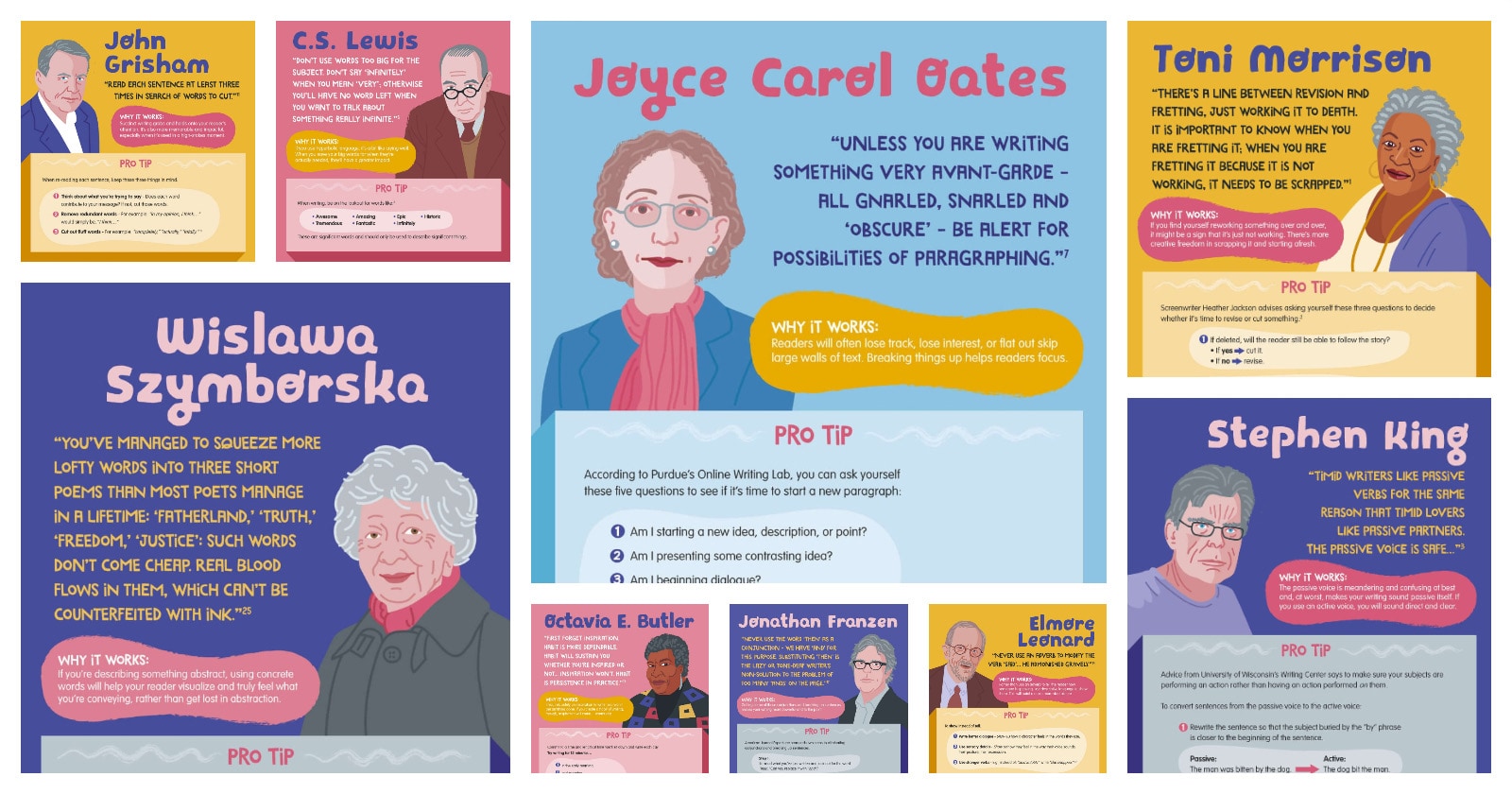
Want to improve your writing but worry about being overwhelmed by too much advice? Explore these bite-sized writing tips from renowned writers.
No matter whether you want to craft better Facebook posts, Instagram stories, college essays or short stories, a piece of writing advice will always be helpful.
Ivory Research, one of the UK’s leading academic research companies, has revealed an epic infographic with 15 writing lessons from successful authors, created by Keira Bennett with the help of Neomam Studio.
The infographic puts together bite-sized writing tips from 15 most renowned writers: Stephen King, Toni Morrison, George Orwell, Haruki Murakami, Joyce Carol Oates, or the Nobel Prize winner Wisława Szymborska.
The best thing about the infographic is that it presents each tip in a brief but detailed and convincing way. The author’s argument is being further researched, and you can read examples that will help you start using the tip in your own writing.
Joyce Carol Oates advises using short paragraphs, which is especially helpful in times of shortening attention span and information overload: “Unless you are writing something very avant-garde – all gnarled, snarled and obscure – be alert for possibilities of paragraphing.”
Make sure to check out the infographic on Ivory Research blog, read the accompanying text, and find out more tips in the attached sources.
As the visual is extremely long, we cut it into bite-sized images from single authors, so that you can explore them one at a time.
Note: Please credit the visuals to the Ivory Research blog.
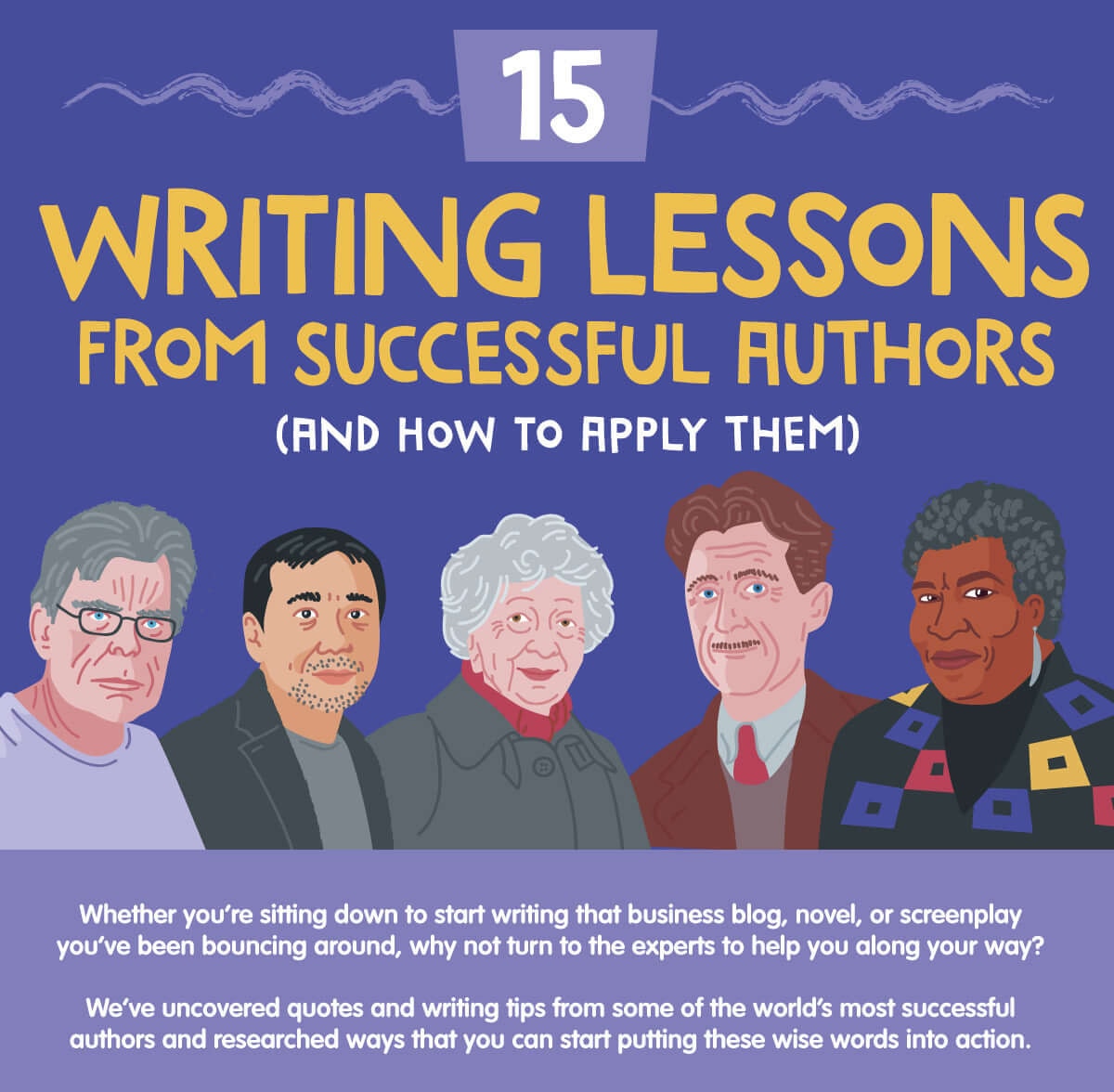
15 writing lessons from successful authors
1. Toni Morrison
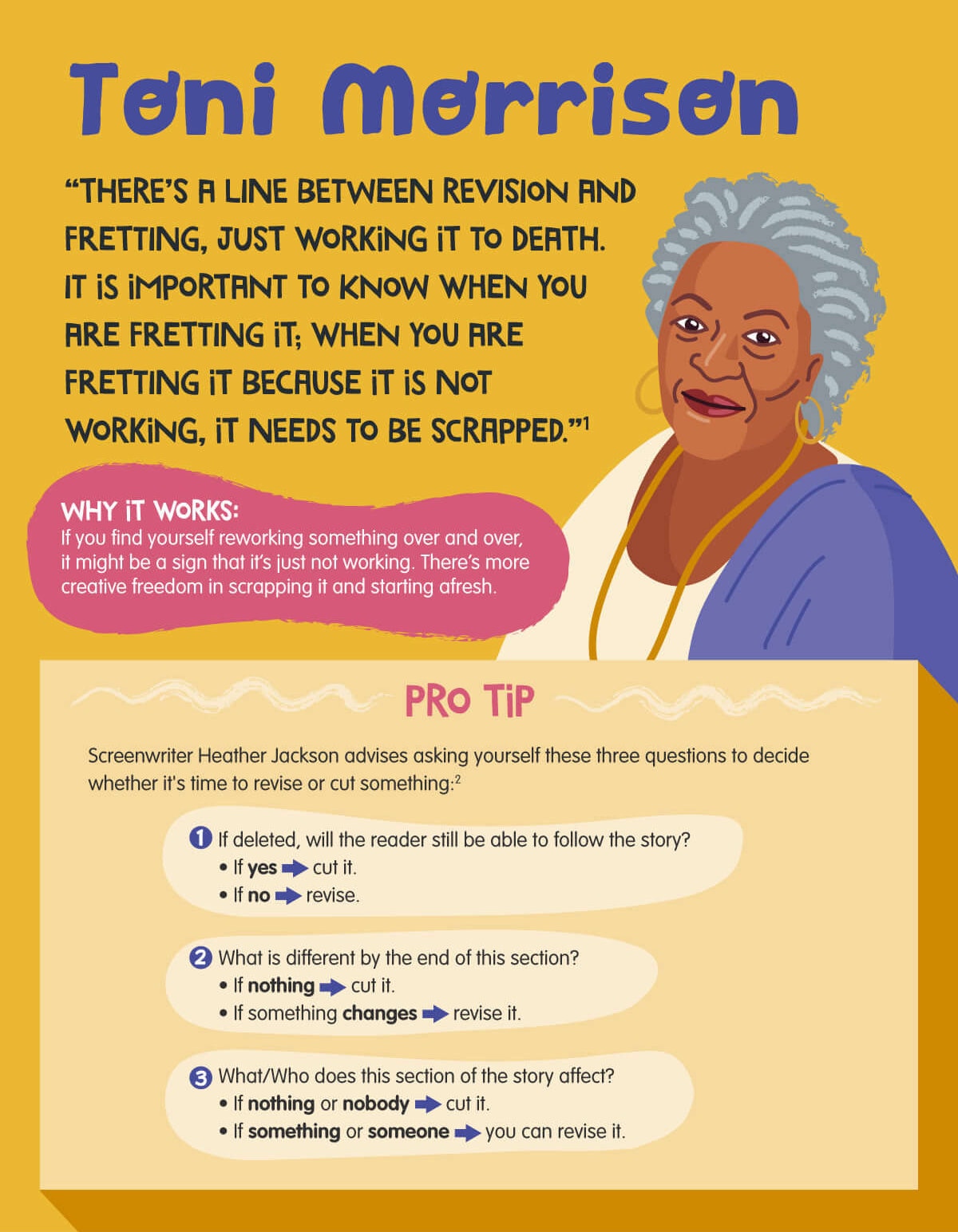
Toni Morrison: There’s a line between revision and fretting, just working it to death. It is important to know when you are fretting it; when you are fretting it because it is not working, it needs to be scrapped.
Why it works: If you find yourself reworking something over and over, it might be a sign that it’s just not working. There’s more creative freedom in scrapping it and starting afresh.
2. John Grisham
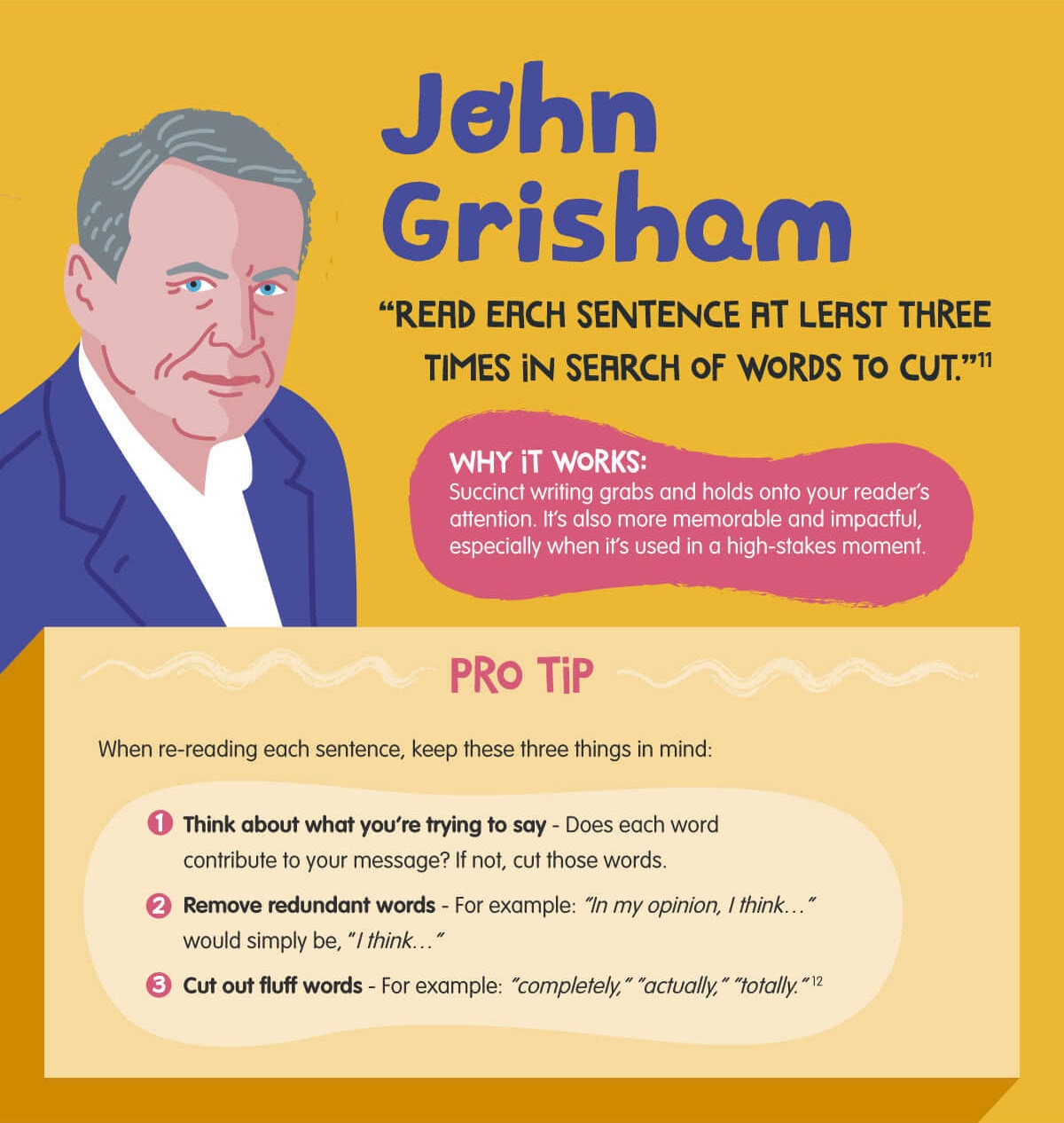
John Grisham: Read each sentence at least three times in search of words to cut.
Why it works: Succinct writing grabs and holds onto your reader’s attention. It’s also more memorable and impactful, especially when it’s used in a high-stakes moment.
3. Wisława Szymborska
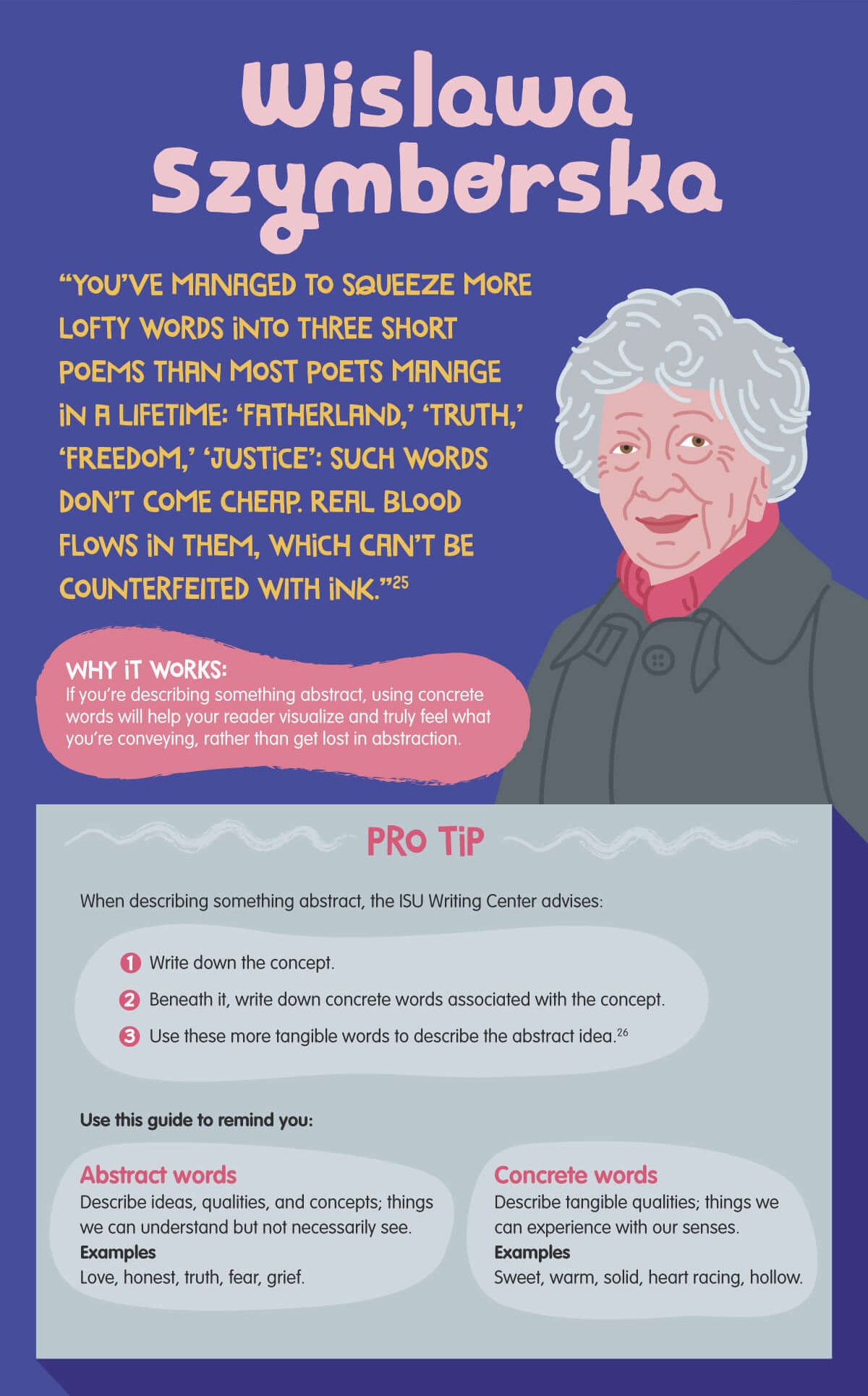
Wisława Szymborska: You’ve managed to squeeze more lofty words into three short poems than most poets manage in a lifetime: “Fatherland,” “Truth,” “Freedom,” “Justice”: such words don’t come cheap. Real blood flows in them, which can’t be counterfeited with ink.
Why it works: If you’re describing something abstract, using concrete words will help your reader visualize and truly feel what you’re conveying, rather than get lost in abstraction.
4. Janet Fitch
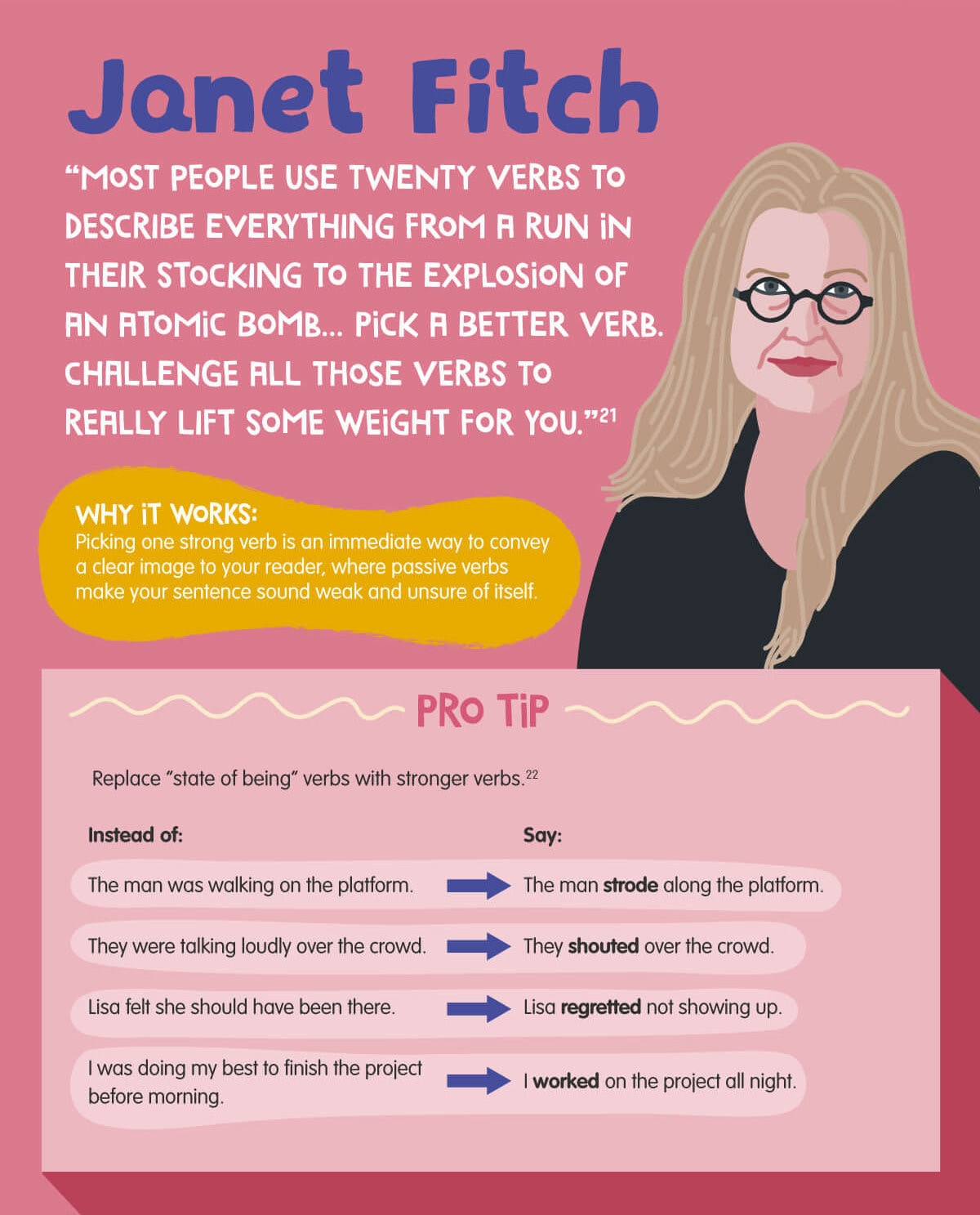
Janet Fitch: Most people use twenty verbs to describe everything from a run in their stocking to the explosion of an atomic bomb… Pick a better verb. Challenge all those verbs to really lift some weight for you.
Why it works: Picking one strong verb is an immediate way to convey a clear image to your reader, where passive verbs make your sentence sound weak and unsure of itself.
5. C.S. Lewis
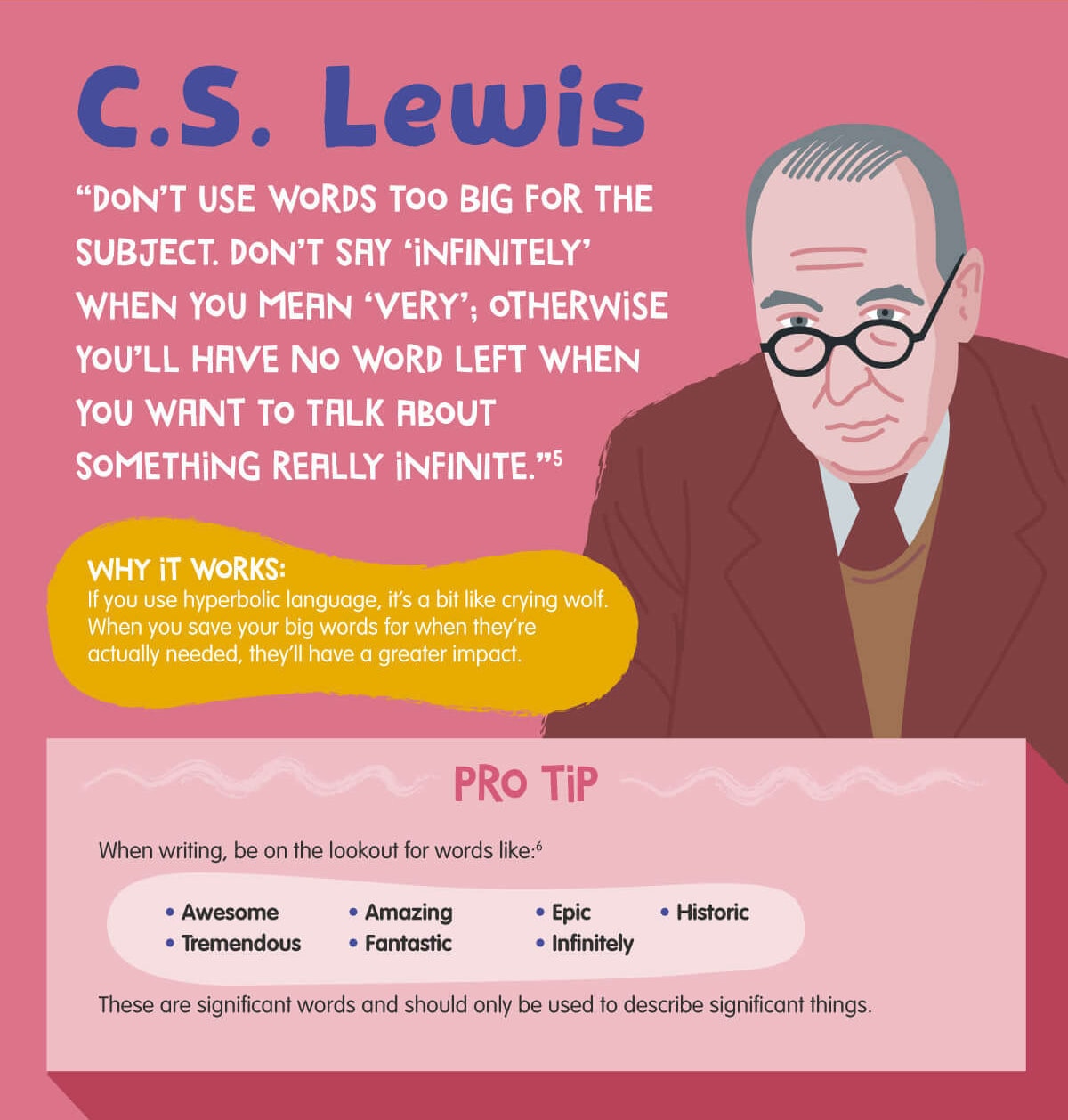
C.S. Lewis: Don’t use words too big for the subject. Don’t say “infinitely” when you mean “very”; otherwise you’ll have no word left when you want to talk about something really infinite.
Why it works: If you use hyperbolic language, it’s a bit like crying wolf. When you save your big words for when they’re actually needed, they’ll have a greater impact.
6. Elmore Leonard
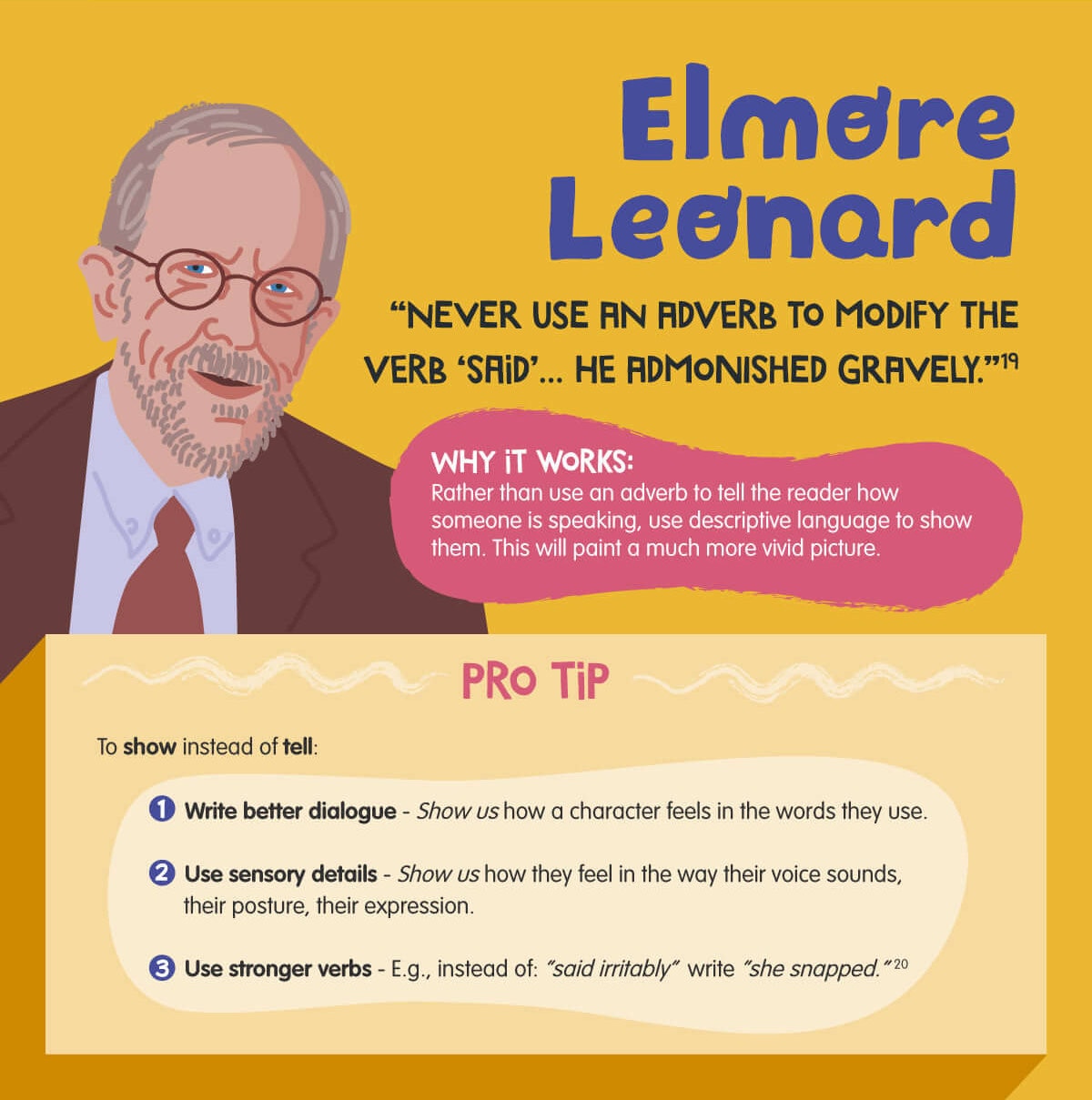
Elmore Leonard: Never use an adverb to modify the verb “said”… He admonished gravely.
Why it works: Rather than use an adverb to tell the reader how someone is speaking, use descriptive language to show them. This will paint a much more vivid picture.
7. Jack Hart
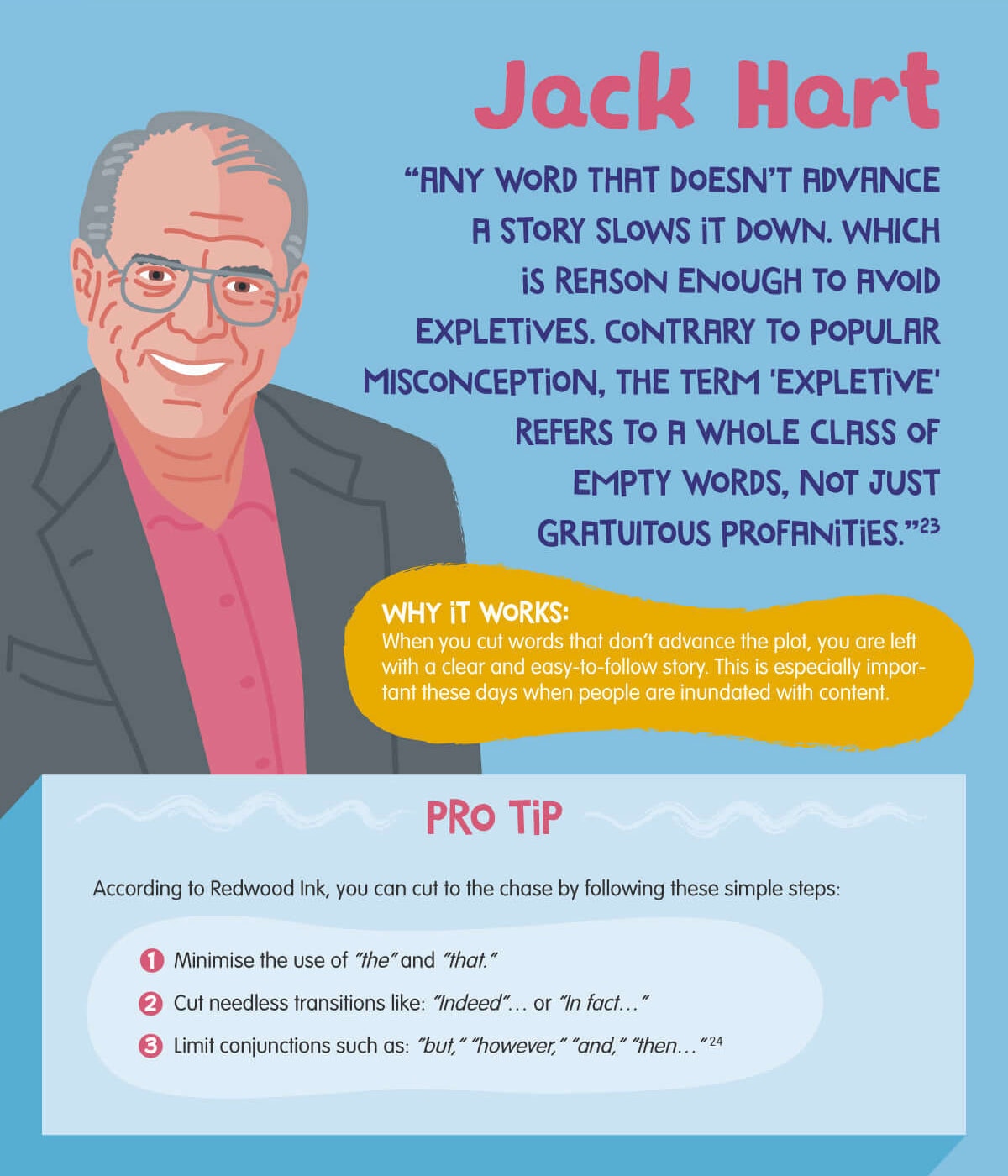
Jack Hart: Any word that doesn’t advance a story slows it down. Which is reason enough to avoid expletives. Contrary to popular misconception, the term “expletive” refers to a whole class of empty words, not just gratuitous profanities.
Why it works: When you cut words that don’t advance the plot, you are left with a clear and easy-to-follow story. This is especially important these days when people are inundated with content.
8. Martin Amis
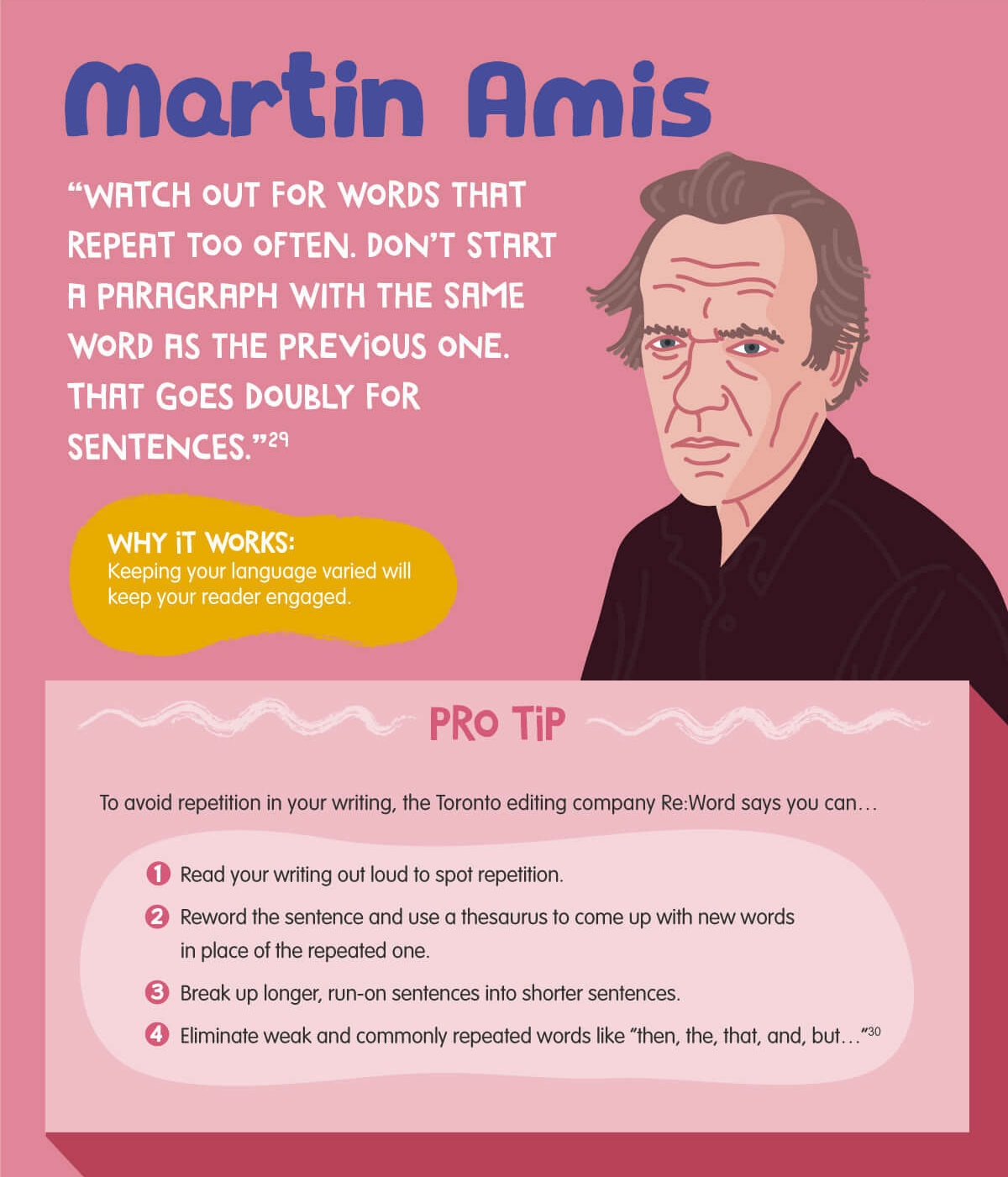
Martin Amis: Watch out for words that repeat too often. Don’t start a paragraph with the same word as the previous one. That goes doubly for sentences.
Why it works: Keeping your language varied will keep your reader engaged.
9. George Orwell
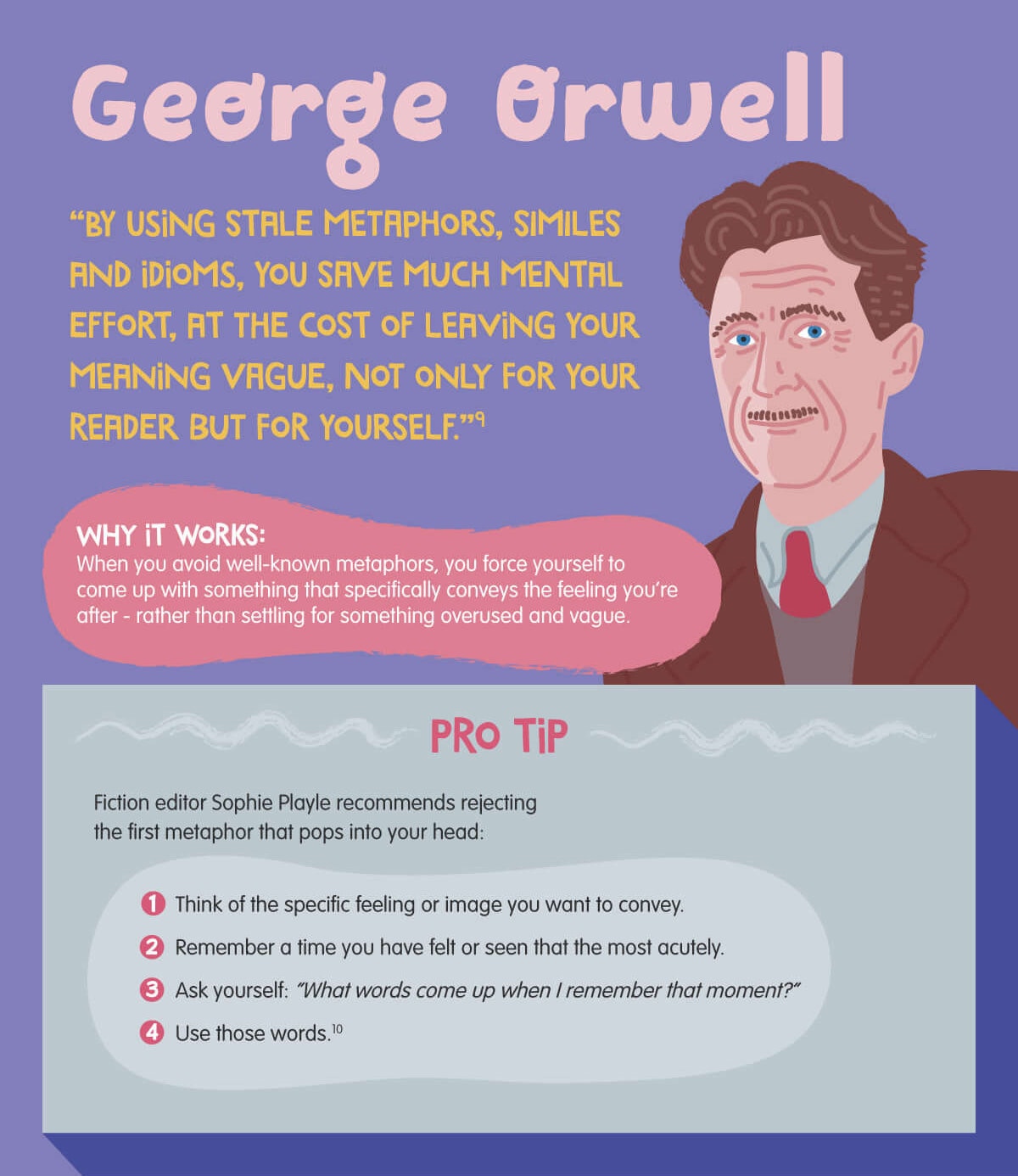
George Orwell: By using stale metaphors, similes and idioms, you save much mental effort, at the cost of leaving your meaning vague, not only for your reader but for yourself.
Why it works: When you avoid well-known metaphors, you force yourself to come up with something that specifically conveys the feeling you’re after – rather than settling for something overused and vague.
10. John McPhee
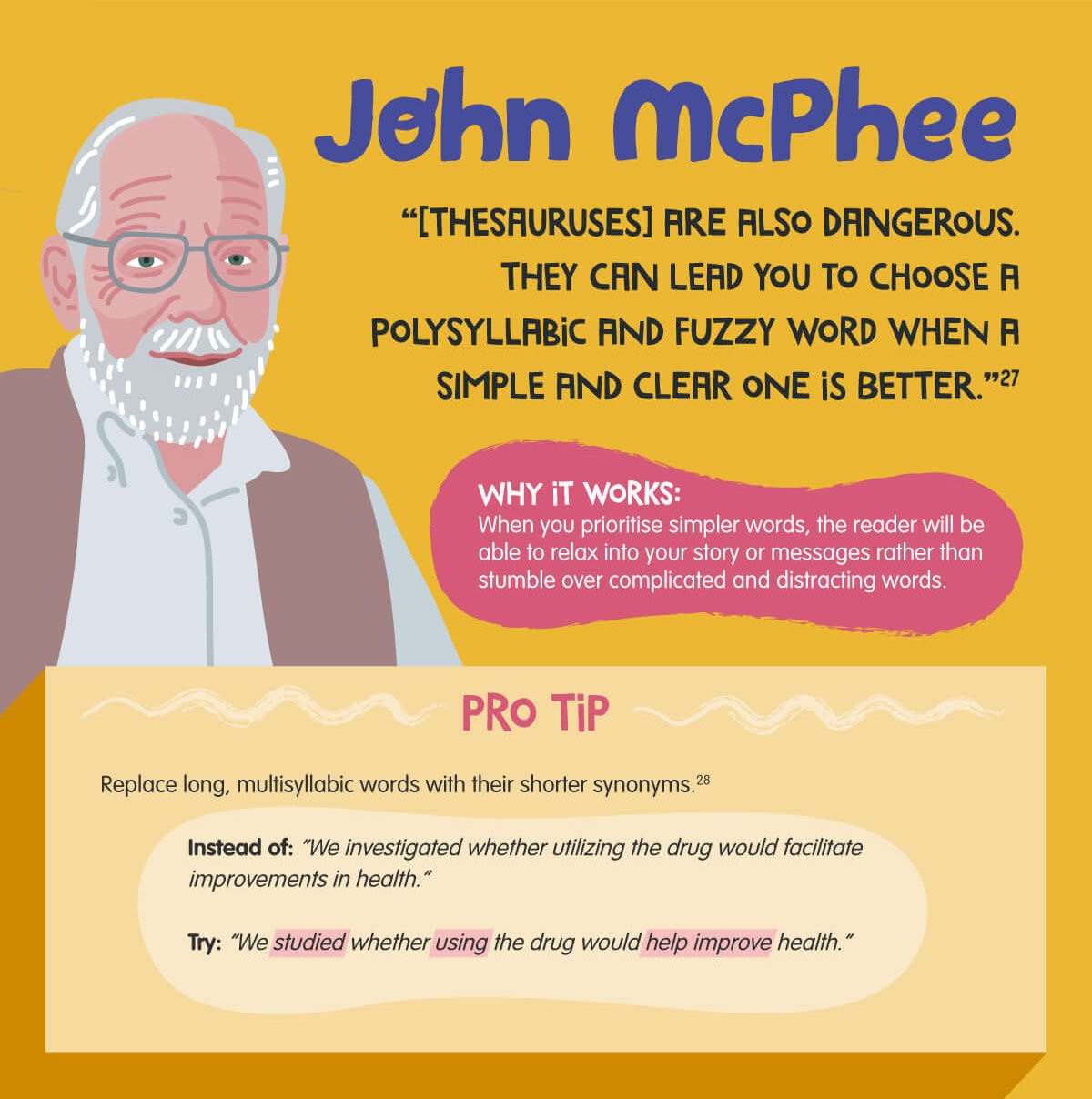
John McPhee: [Thesauruses] are also dangerous. They can lead you to choose a polysyllabic and fuzzy word when a simple and clear one is better.
Why it works: When you prioritize simpler words, the reader will be able to relax into your story or messages rather than stumble over complicated and distracting words.
11. Haruki Murakami
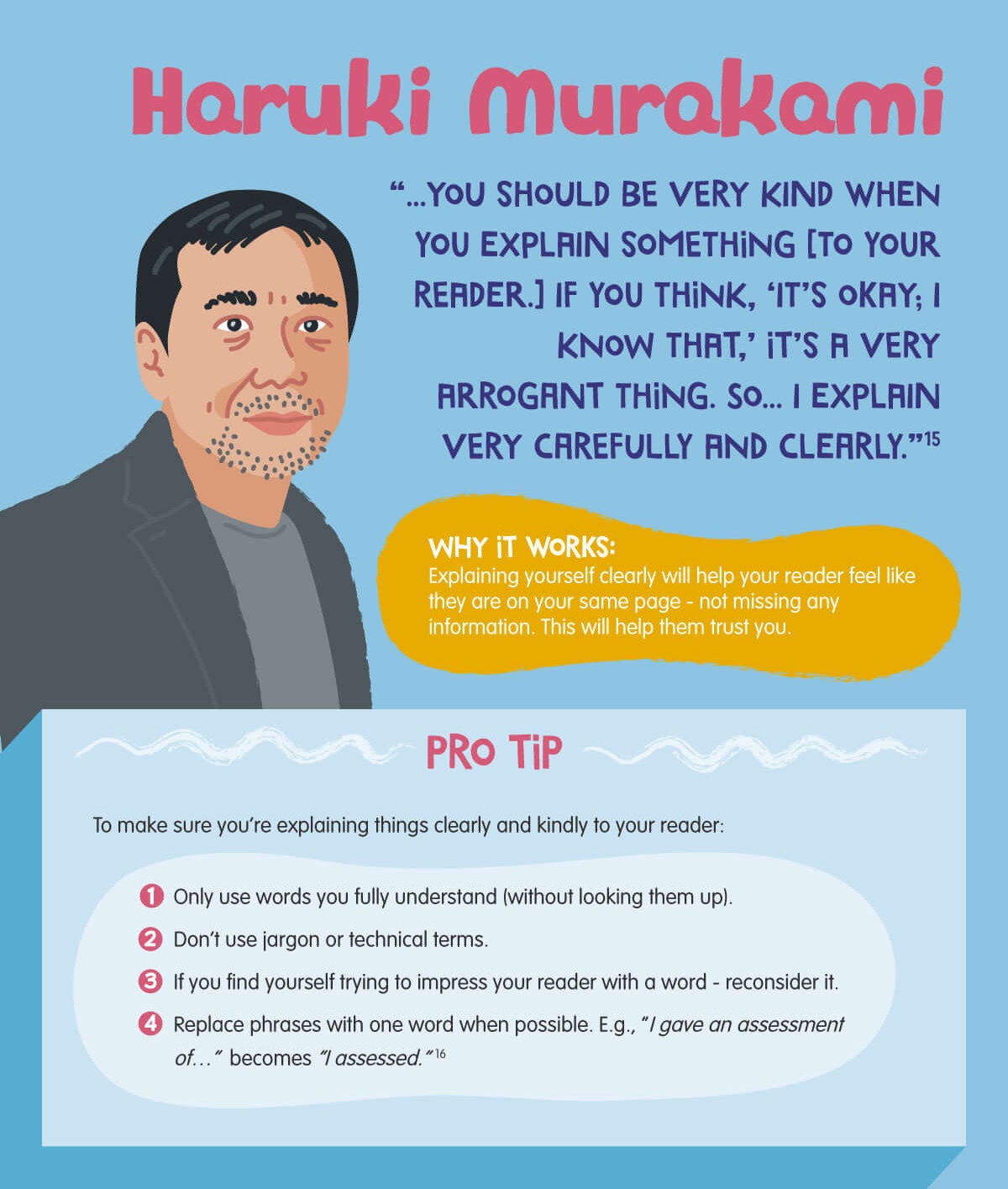
Haruki Murakami: You should be very kind when you explain something (to your reader). If you think, “it’s okay; I know that,” it’s a very arrogant thing. So… I explain very carefully and clearly.
Why it works: Explaining yourself clearly will help your reader feel like they are on your same page – not missing any information. This will help them trust you.
12. Octavia E. Butler
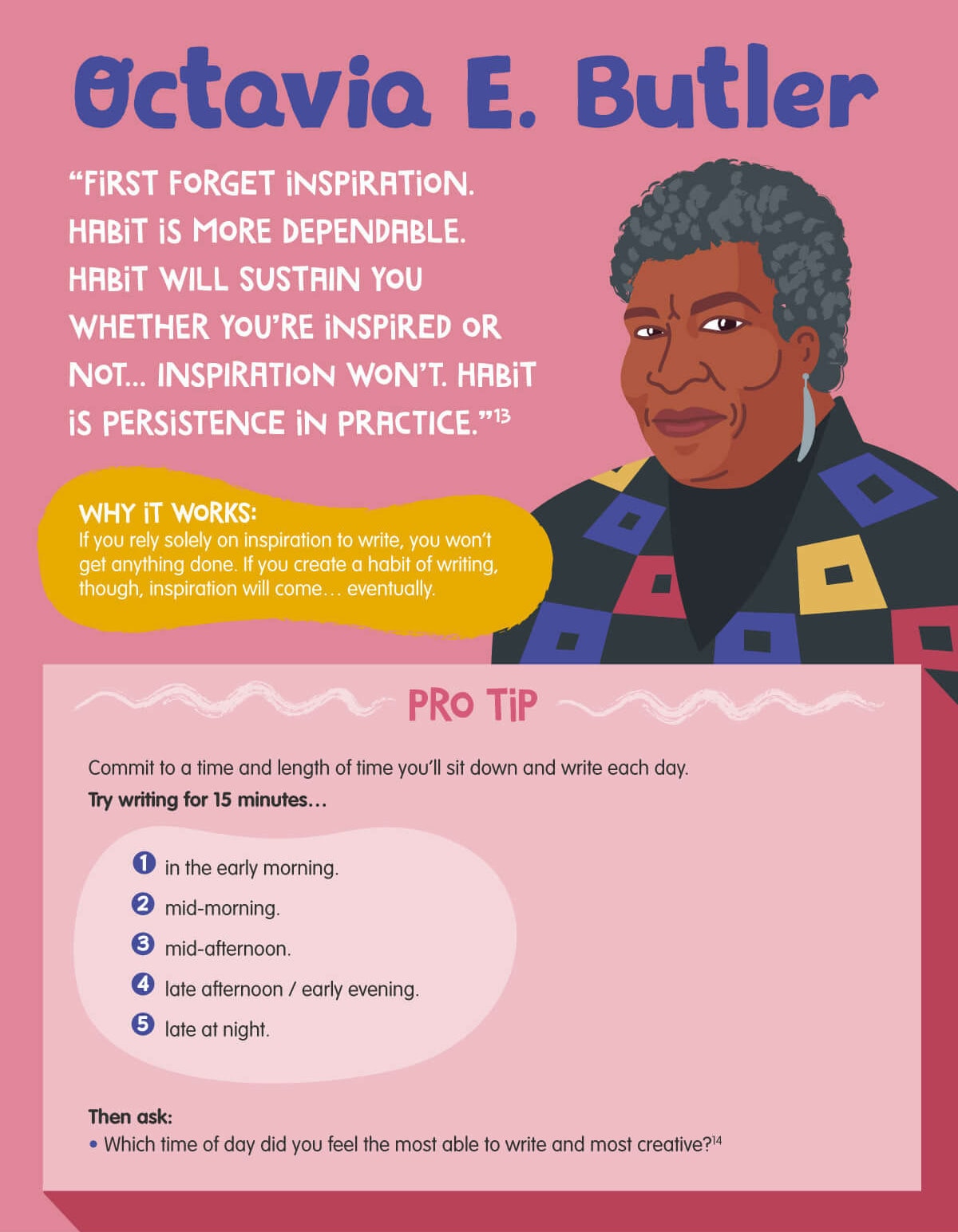
Octavia E. Butler: First forget inspiration. Habit is more dependable. Habit will sustain you whether you’re inspired or not… Inspiration won’t. Habit is persistence in practice.
Why it works: If you rely solely on inspiration to write, you won’t get anything done. If you create a habit of writing, though, inspiration will come… eventually.
13. Jonathan Franzen
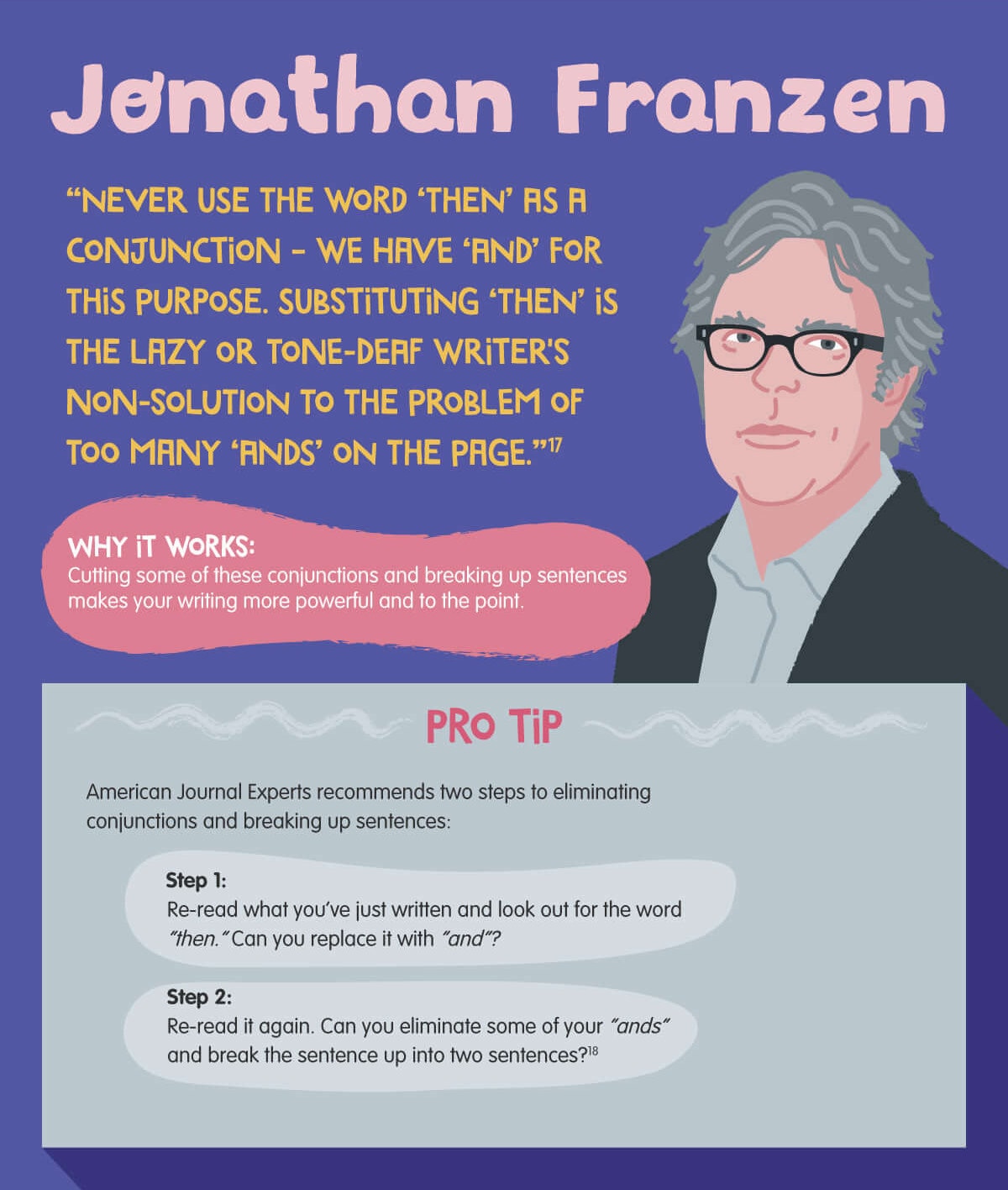
Jonathan Franzen: Never use the word “then” as a conjunction – we have “and” for this purpose. Substituting “then” is the lazy or tone-deaf writer’s non-solution to the problem of too many “ands” on the page.
Why it works: Cutting some of these conjunctions and breaking up sentences makes your writing more powerful and to the point.
14. Stephen King
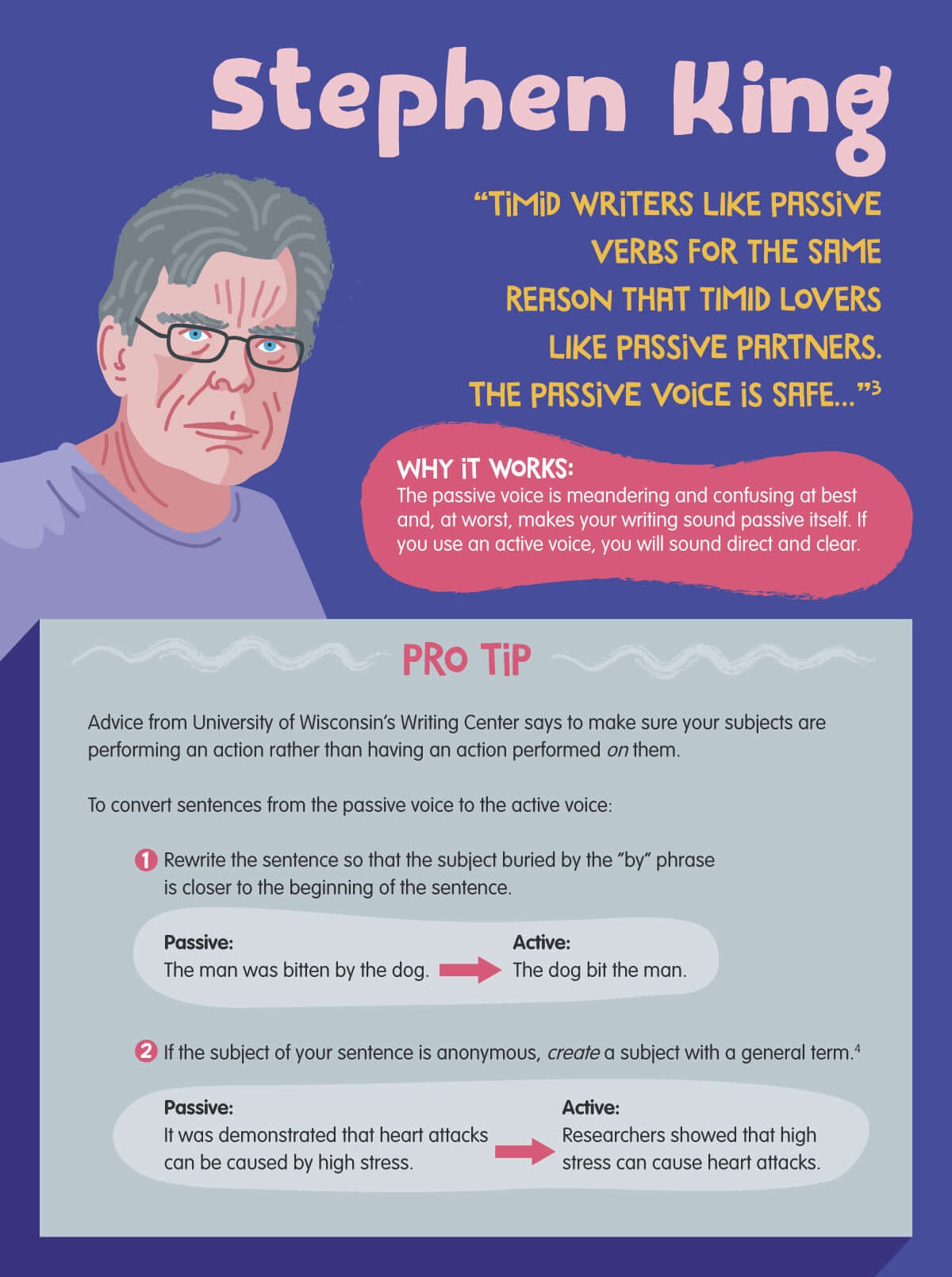
Stephen King: Timid writers like passive verbs for the same reason that timid lovers like passive partners. The passive voice is safe…
Why it works: The passive voice is meandering and confusing at best and, at worst, makes your writing sound passive itself. If you use an active voice, you will sound direct and clear.
15. Joyce Carol Oates
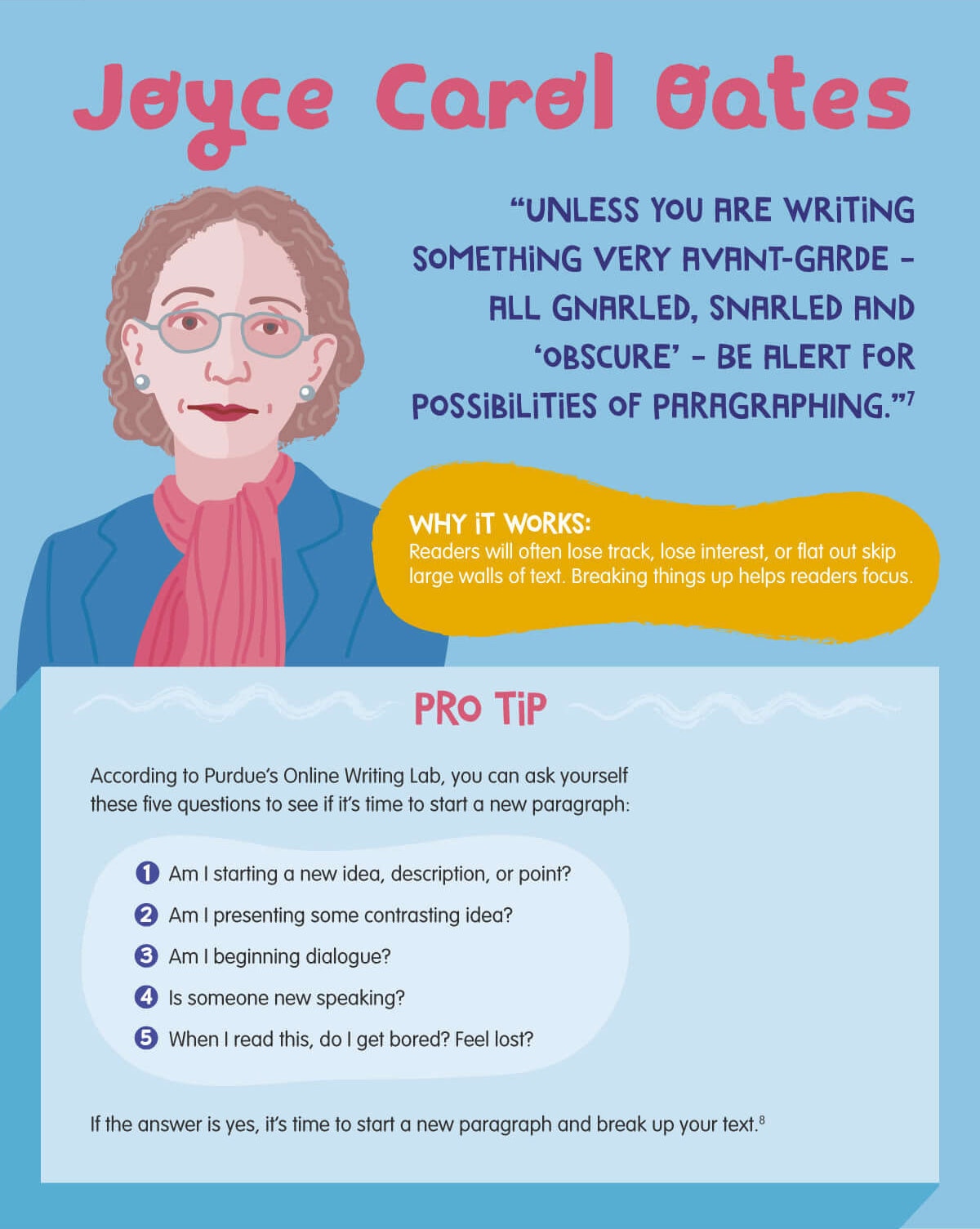
Joyce Carol Oates: Unless you are writing something very avant-garde – all gnarled, snarled and “obscure” – be alert for possibilities of paragraphing.
Why it works: Readers will often lose track, lose interest, or flat out skip large walls of text. Breaking things up helps readers focus.
Keep exploring. Here are other popular lists:
[ef-archive number=5 tag=”lists”]








Leave a Reply